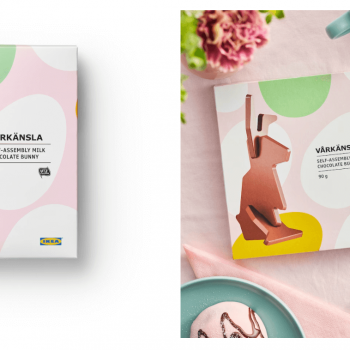
Facebook changes with a focus on AI
- On 14/02/2024
- AI, AI tools, Artificial Intelligence, changes in algorithm, Facebook, Facebook Ads, instagram, instagram, мета
Facebook (along with Instagram and WhatsApp) continues to be in the top 3 most liked social platforms globally, with nearly 2 billion daily active users. There are constantly many updates – both in the algorithm and in the functionalities, with a main focus on AI (Artificial Intelligence).
Changes in the algorithm and functionalities
Meta now tracks user actions on both Facebook and Instagram at the same time. There is a direct connection between the two platforms, making the AI much smarter and more knowledgeable, which is a huge advantage versus Google. There is the possibility of much more precise ads, with better targeting options.
The user experience in Meta is highly personalized. AI systems show more of the content that people have been most active on. Everyone can help the algorithm to show the content they need even more precisely – by simply closing posts that are not relevant to their interests.
On both Facebook and Instagram, automated messages pop up asking questions like, “Should we keep serving you content like this?”, “Are you interested in this ad?”, “Help us show you the right ads for you”. They further help to target the algorithm more precisely.
Broadcast Channels – this is a new opportunity for owners of business pages – to create channels for communication with users. Anyone subscribed to such a channel receives notifications when there is something new.
Verification of businesses – the option to verify businesses (with a blue badge, similar to global brands) is also expected in Bulgaria. The same is now in effect for personal profiles. Both services are paid. The advantage is better support, in case of need, more security against hacking. And for businesses, they also benefit from easier discoverability and visibility.
Meta is also gradually introducing more AI tools for content creation – for making music (with text guidance), for creating stickers in messages, and more.
News in ads
 In connection with the requirements of the European Union for transparency and more possibility of control of the content by the users, a number of changes are being introduced to the ads on the platform. One of them is the requirement to enter the name of the company paying for the ad (when setting up ads).
In connection with the requirements of the European Union for transparency and more possibility of control of the content by the users, a number of changes are being introduced to the ads on the platform. One of them is the requirement to enter the name of the company paying for the ad (when setting up ads).
On Facebook, you can now pay if you don’t want to see ads.
In connection with Chrome’s action to remove third-party cookies, the implementation of the Conversions API is required. It is designed to create a direct and more reliable connection between a server, website platform, application or CRM, and Meta. This helps enable personalization, optimization and measurement of ads in meta-technologies so that ads are shown to people who are more likely to find them relevant. CAPI is also important for remarketing audiences, which can become very small without it.
Multi-advertiser ads. In the settings in Ads Manager, there is a tick, which, if set, the ad being set can appear in a carousel together with other advertisers. Such a carousel is activated only if Meta has noticed that the user is ready to shop. It is not a problem to enter carousels with other advertisers, especially if the ad is interesting. This is another opportunity to get noticed.
Gone are the many options for targeting by location. Currently, only the location where the user lives or works can be noted.
Similar to Google Ads, Facebook ads now have Delivery Recommendations. These are optimization automations that should be tested before working with them.
New to Facebook ads is the ability to send direct traffic to an Instagram profile. This doesn’t mean more followers or engagement can be activated, just more visits.
Facebook group ads. The feature is for the purpose of adding new members to groups, but not to sell them a specific product or service.
Reservations replaces Reach & Frequency ads. This is an alternative to the Meta ad auction. With this option, you know in advance the CPM and exactly what audience you will reach based on your budget. You can also control the ad frequency. It is suitable for larger customers. It is active for Engagement and Awareness.
There are also innovations in setting a budget in the platform. For example, the daily budget becomes flexible (like in Google Ads) and can exceed the limit in order not to miss out on increased interest from users. The final set budget will not be exceeded, but daily budgets may be significantly exceeded if the algorithm detects an opportunity for more ad exposure. This is a change that can be both beneficial and harmful. For example, if there is a lot of interest from the platform, it can increase the money for an ad sharply. Below it, however, there may be negative comments that will increase many times more if the advertising budget is raised sharply.
The budget can be planned more precisely – for example, to increase on specific days. This is of great benefit to businesses, especially if it is clear in advance which days are expected to be stronger.
It can be written for a long time, but the truth is that platform changes are a daily occurrence. The important thing is to monitor and use automation to better plan your content and ads. There are sure to be interesting experiences ahead on Meta platforms, especially as AI technologies are increasingly introduced.



